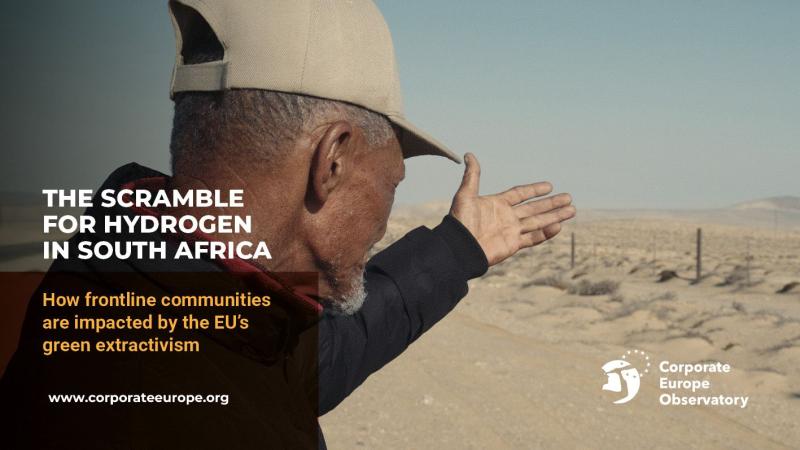
The scramble for hydrogen in South Africa
How frontline communities are impacted by the EU’s green extractivism
Europe’s scramble for green hydrogen in South Africa will have a devastating impact on local communities, the very same ones whose voices are being ignored by EU policy makers. CEO was in South Africa speaking with people who live in and around proposed green hydrogen sites, hearing first-hand what they are facing. This report is an attempt to bring their voices into the debate.
Read the full report here
The EU wants to import vast quantities of green hydrogen to decarbonise its economy, with industry and politicians promoting it as the new silver bullet to solve the climate crisis.
It has identified South Africa as a potential provider, promising jobs and low-carbon development in exchange for its green hydrogen. According to internal European Commission documents, preparations are underway for a deal on critical raw materials and green hydrogen between South Africa and the EU - presented as a win-win situation for everyone.
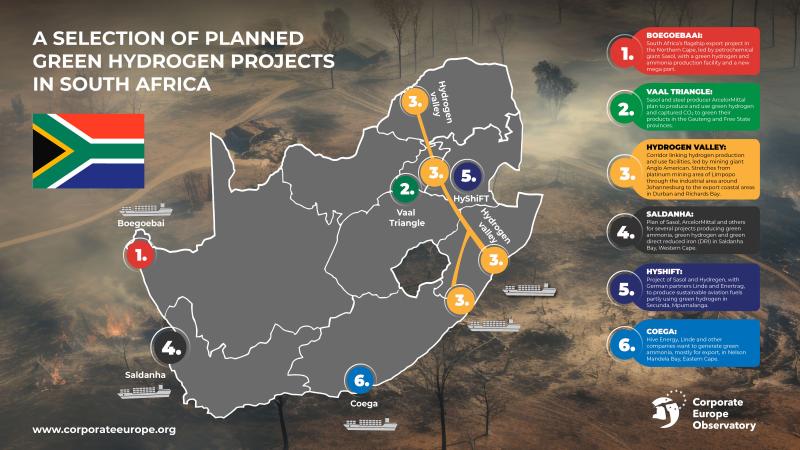
However, the hydrogen reality on the ground is much dirtier, and the outcomes of the scramble for hydrogen are far from win-win. The EU is continuing the same neocolonial extractivist model it has used to secure other raw materials, including oil and gas.
Moreover, the voices of the people who will be directly affected by these projects are totally absent: there has been no free, prior and informed consent on the ground, and their experiences are completely missing from the European hydrogen policy debate.
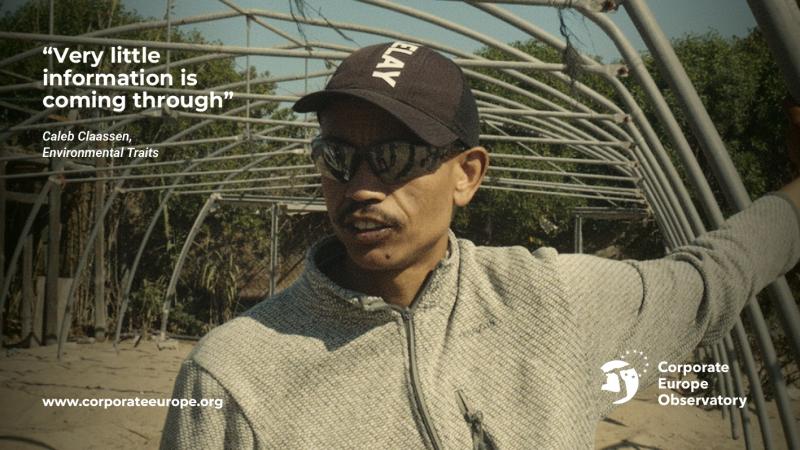
In May 2024, Corporate Europe Observatory visited frontline communities in South Africa that are affected by planned green hydrogen projects, to hear their stories.
They include fishing communities in the Northern Cape, who fear that new hydrogen plants and ports along South Africa’s coast will harm marine ecosystems and endanger their livelihoods, and indigenous Nama communities who are being pushed off their land to make way for a mega hydrogen complex (see Section 3.1 - Boegoebaai: interconnected fights against oil, gas and green hydrogen).
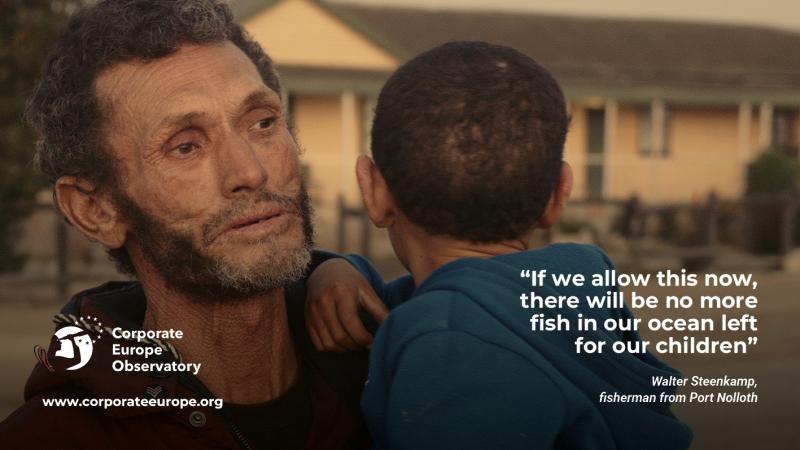
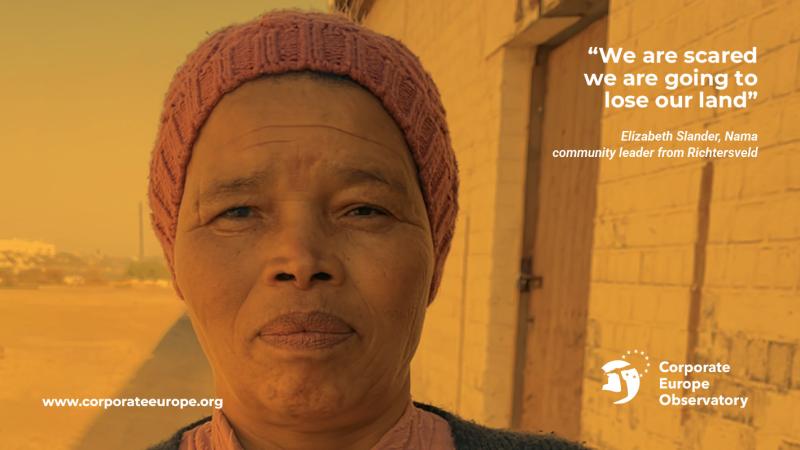
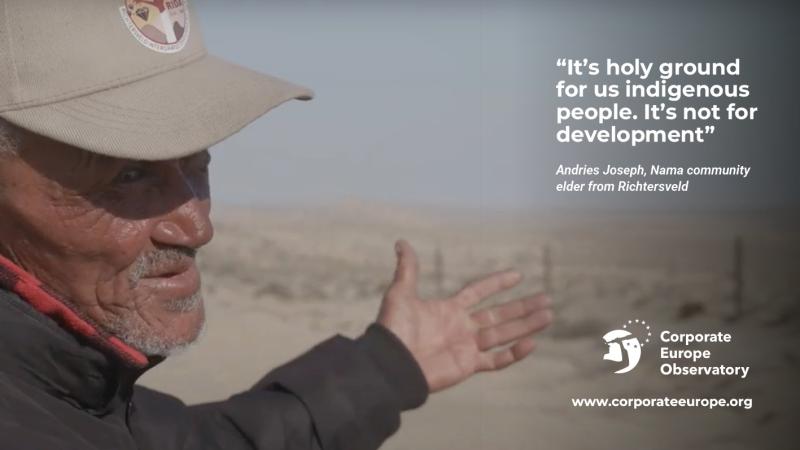
The stories also come from people living in the Vaal Triangle, who are experiencing depressingly familiar patterns of extraction, exclusion and high socio-ecological costs with the new green hydrogen projects run by the very same companies that have polluted their communities for decades (see Section 3.2 - The Vaal Triangle: greenwashing a polluting monster from Apartheid times).
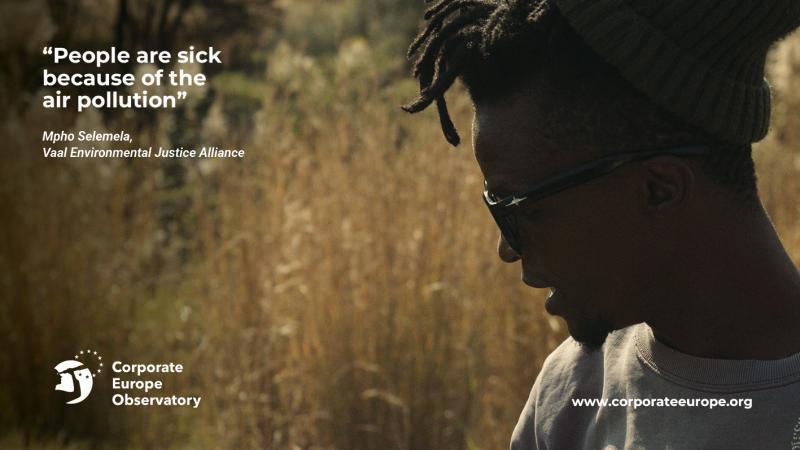
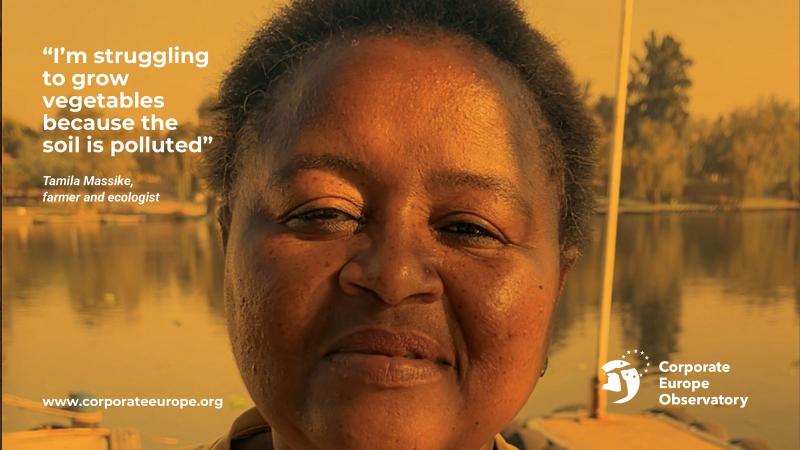
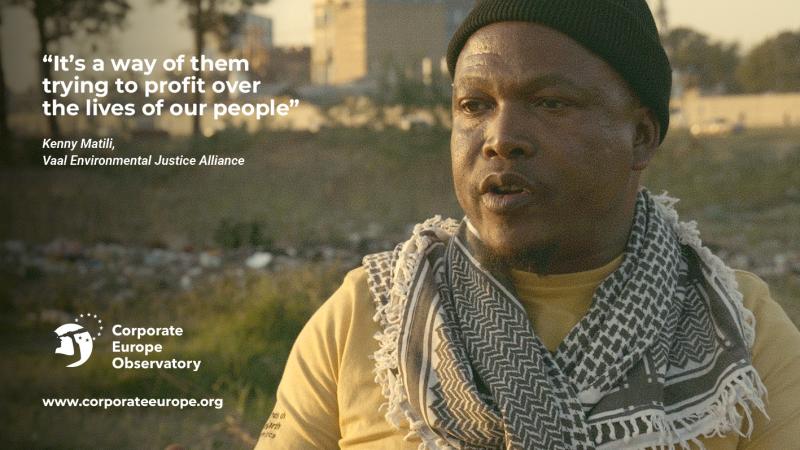
Stories were also gathered from mining communities living in Limpopo, close to the world’s largest open pit platinum mine, whose rights and health have been abused for years by the same company that is now using hydrogen to greenwash its operations (see Section 4.5 - Propping up polluters in sacrifice zones).
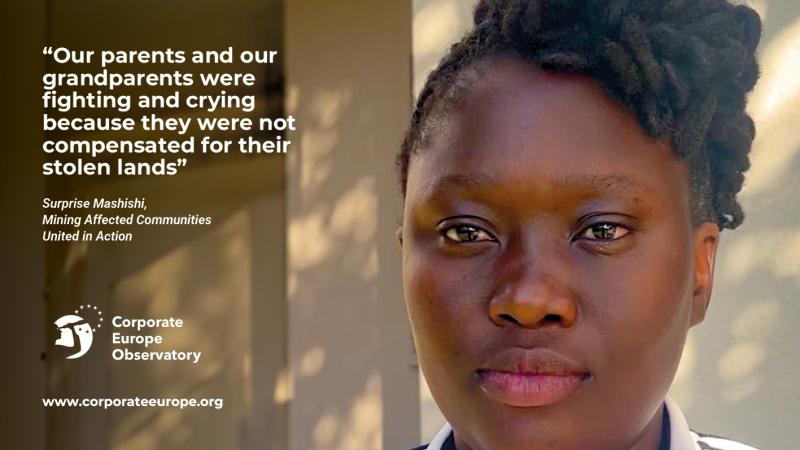
Local activists from the coal-mining town of Ermelo in South Africa’s Mpumalanga province, where communities are now confronted with green hydrogen projects, echoed the story told across the country: that the key players behind the campaign for green hydrogen expansion in South Africa belong to the world’s biggest polluters (see Section 4.7 - Exclusion of affected communities). “The old fossil fuel companies are pushing green hydrogen,” said Given Zulu of the Khuthala Environmental Care Group. “I don’t see them abandoning their way of making money. I think it’s just a way of making the world shut up a bit … to say, [they] are no longer polluting.”
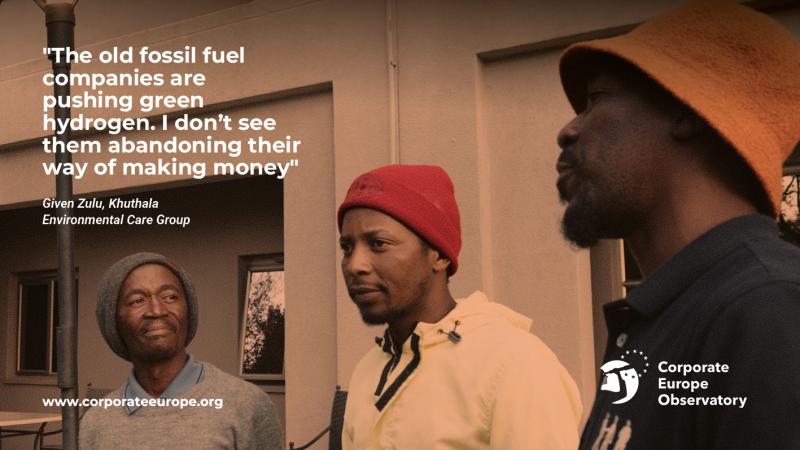
The testimonies we gathered reinforce concerns about the structural impacts of green hydrogen projects on exporting countries and communities in terms of:
- Land grabbing and undermining land rights;
- Exacerbating water scarcity and destroying coastal fishing grounds and local livelihoods;
- Little job creation for local communities and no local decarbonisation;
- Worsening energy poverty and the lack of energy access, despite building vast swathes of wind and solar energy;
- Situating projects where communities have already spent decades paying the social and environmental costs of extractivism;
- Propping up the fossil fuel industry and helping offshore oil and gas drilling.
The EU and in particular Germany and the Netherlands are influential actors in South Africa’s export-oriented hydrogen future, encouraged by the hydrogen lobby.
At the same time, the largest South African polluters are also having an enormous influence and impact on the country’s domestic hydrogen plans, using the promise of green hydrogen as a fig leaf to prolong their dirty business models.
...Welcome to the dark side of the scramble for hydrogen in Africa.
Europe cannot import green hydrogen to decarbonise its own economy at the expense of the Global South. Any just transition must necessarily be a global one, and it is important that European civil society organisations withdraw their support for green hydrogen imports. The scramble for hydrogen must be stopped in its tracks before it causes any more damage.
The following are our recommendations for the EU:
- The EU must scrap its hydrogen import targets and wake up to the dangerous and destructive impact of its green hydrogen plans on local communities and their environments. This will require tuning out the hydrogen lobby and listening to the voices of affected people. The African People’s Climate and Development Declaration, signed by over 500 African civil society groups in September 2023, calls green hydrogen a “false solution we reject… Green hydrogen for export does nothing to increase access for the 600 million Africans without access to energy. Instead it turns our African renewable energy into an exportable commodity and ships our energy overseas.”
- The EU should support South Africa with its own transition, rather than pushing it to sign new agreements that enable the further plundering of its resources. To bring everyone along in the just transition, South Africa must be able to make policies based on its own social and economic needs, and not those of the EU. An alternative development model should be one based on energy justice and democracy rather than green extractivism.
To download the report, click here
Quotes from communities:
Walter Steenkamp, local fisherman and community leader in Port Nolloth (impacted by the Boegoebaai project): “Our government is selling us out... saying that there are no people living on this ground... But I’ve been living here for 50 years, and there are a lot of communities on this land.”
Mpho Selemela, Vaal Environmental Justice Alliance (impacted by Sasol's and AMSA's projects in the Vaal Triangle): “No one from their side or from the government has ever told us about green hydrogen. Most of the communities don’t know. The transition that is coming is not for us. It’s for businesspeople, maybe for their exports and their trade. But for us – we’re damaged."
Surprise Mashishi, Mining Affected Communities United in Action, (impacted by Anglo American's Hydrogen Corridor Valley project): “They have been building the solar panels and the people have been removed from their areas to other villages.
Elizabeth Slander, a Nama community leader from the town of Sandrift in Richtersveld, (impacted by the Boegoebaai project):
“We as South Africans aren’t using green hydrogen, so why should it be produced on our land? Why can’t it be developed in Europe or in other countries that need it?”
For extra quotes from communities in the Northern Cape, the Vaal Triangle, Mpumalanga and Limpopo provinces, see here.
